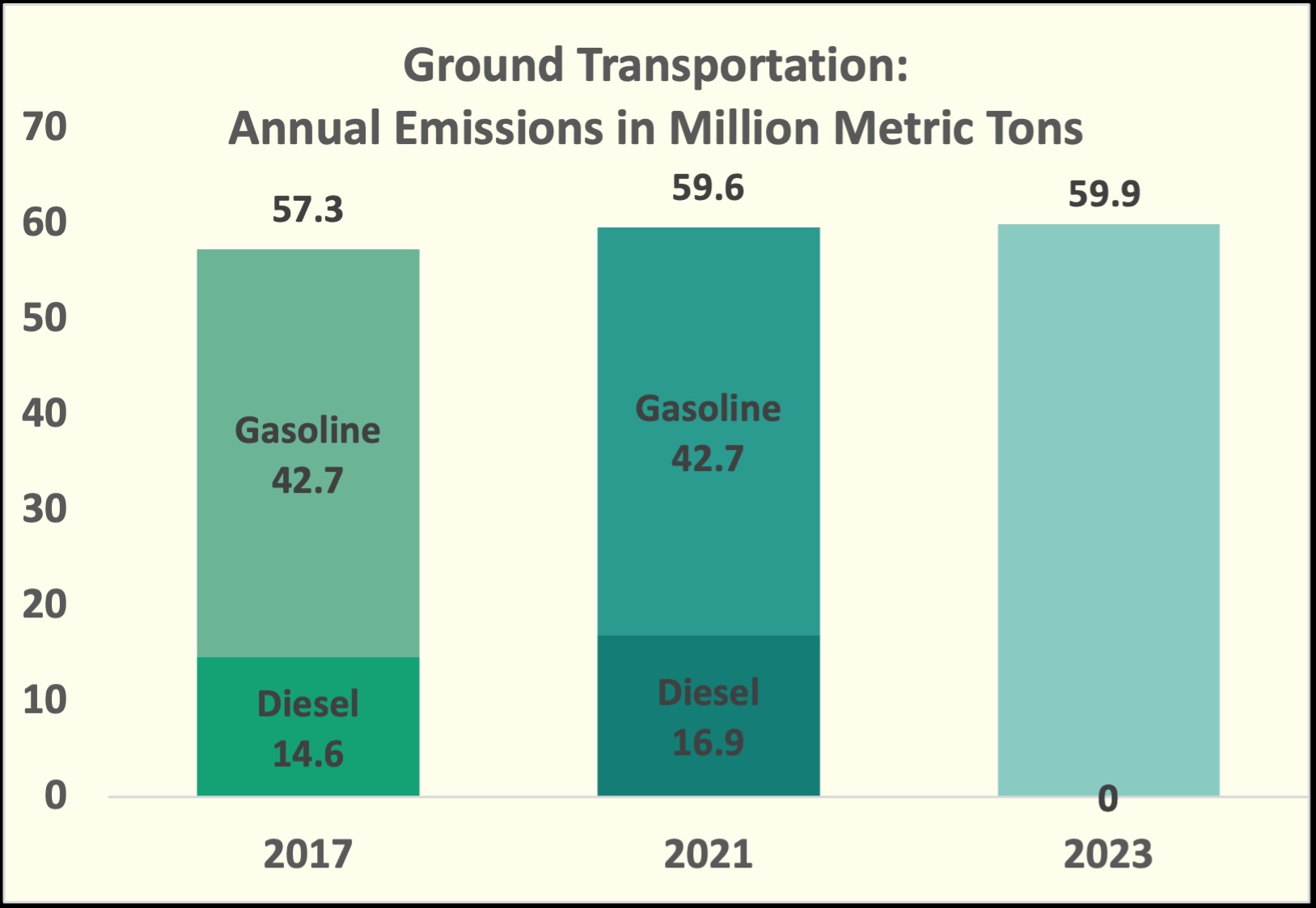December 19th, 2023 Transportation Seminar
You can view our PowerPoint outlining our transportation solutions in the link attached here
 OVER THE PAST 5 YEARS: Transportation has become Georgia's largest source of GHG emissions, and they are increasing
OVER THE PAST 5 YEARS: Transportation has become Georgia's largest source of GHG emissions, and they are increasing
Transportation emissions surpassed pre-pandemic (2017) levels in 2021, emitting 59.6 million metric tons of carbon dioxide equivalents in 2021, 4.0% higher than its 57.3 MMtCO2-e in 2017. Gasoline-powered cars, pick-ups, and SUVs returned to pre-COVID levels. In contrast, emissions from diesel-fueled medium/heavy-duty trucks and buses grew by 16.1%, driven by a boom in the online retailing industry and accounting for nearly all of the sector's growth in emissions. Emissions in 2023 were slightly higher than in 2021; the breakdown between gasoline and diesel can no longer be tracked by county.
Electric Vehicles

The cost of a new EV is expected to be comparable to that of internal combustion engine vehicles over the next decade.
Carbon Drawdown Potential: 1 Megaton of reduction = 4 typical landfill facilities with 5 MW gas-to-energy systems
Energy Efficient Cars
 The vast majority of the 8.5 million registered cars in Georgia have traditional internal combustion engines meaning a big opportunity for energy efficient vehicles.
The vast majority of the 8.5 million registered cars in Georgia have traditional internal combustion engines meaning a big opportunity for energy efficient vehicles.
Carbon Drawdown Potential: 1 Megaton of reduction = Improve fleetwide fuel economy for light duty vehicles 3%
Energy Efficient Trucks
 Increasing fuel efficiency for both new and existing trucks can lead to significant emission reductions.
Increasing fuel efficiency for both new and existing trucks can lead to significant emission reductions.
Carbon Drawdown Potential: 1 Megaton of reduction = Reduce diesel fuel use in medium and heavy duty trucks 10%
Mass Transit
 For passengers, mass transit can frequently be the cheapest mode of travel (and the lowest CO2 option)
For passengers, mass transit can frequently be the cheapest mode of travel (and the lowest CO2 option)
Transit options in Georgia released ~0.245 lbs of CO2 per passenger mile, compared to 0.891 lbs for a single occupancy vehicle.
Carbon Drawdown Potential: 1 Megaton of reduction = 320,000 additional households in Transit Oriented Developments
Alternative Mobility
 87% of daily trips in the US occur in personal vehicles and prior to the pandemic, adults spent 1 hour driving every day.
87% of daily trips in the US occur in personal vehicles and prior to the pandemic, adults spent 1 hour driving every day.
Replacing short trips with walking, biking, and micro e-mobility can all contribute to emissions reductions. Telecommuting has become an important source of reduction as well.
Carbon Drawdown Potential: 1 Megaton of reduction = Eliminate 2.5% of car trips

